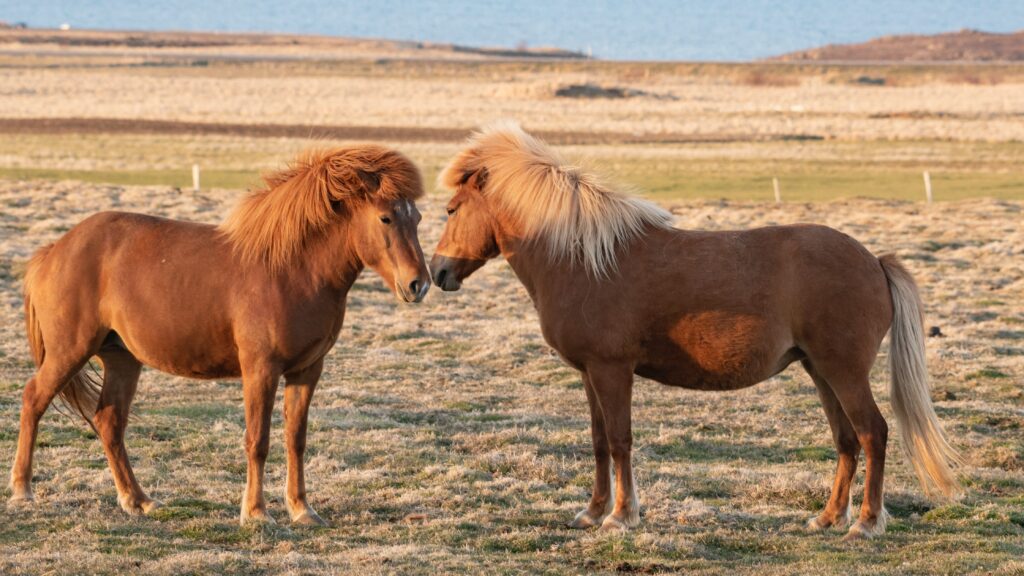
Introduction
People truly celebrate Icelandic horses as extraordinary animals for their exceptional ability to thrive in the most unforgiving cold climates. These robust creatures exhibit a set of distinctive traits that render them perfectly suited for thriving in the harsh conditions of Iceland. In the pages of this in-depth guide, we will embark on a journey through their history, unique characteristics, and the essential factors to consider when it comes to Icelandic horses. By the conclusion, you’ll have gained profound insights into why these horses earn high esteem for their remarkable adaptations to cold environments and will be able to determine if they align with your equestrian aspirations.
Icelandic Horses History and Origin
The Icelandic horse has a rich history dating back to the Viking settlement of Iceland more than a thousand years ago. These horses are believed to have been brought to the island by Norse settlers between the 9th and 10th centuries. Their isolation in Iceland led to a unique and pure breed, largely unaffected by external influences. This purity has been carefully preserved over the centuries, making Icelandic horses a living link to the past.
Why to Choose Icelandic Horses
Icelandic horses receive renown for their versatility and exceptional temperament. They not only serve as dependable riding companions but also possess the strength to accommodate riders of diverse sizes and the stamina to cover extensive distances. With their docile disposition and unwavering work ethic, they prove to be the perfect choice for riders, whether they’re beginners taking their first steps into the equestrian world or seasoned enthusiasts seeking a reliable partner in their equine adventures.
Average Life of Icelandic Horses
Icelandic horses are known for their longevity. On average, they can live between 25 to 30 years, provided they receive proper care and nutrition. This extended lifespan allows for many years of companionship and utility.
Best Diet and Nutrition for Icelandic Horses
Maintaining an appropriate diet is crucial for the health of Icelandic horses. Their diet should include quality hay or grass, supplemented with minerals and vitamins as needed. Their nutritional requirements can vary based on age, activity level, and the harshness of the climate they inhabit. Consultation with a veterinarian or equine nutritionist is recommended for tailored feeding plans.
Best Breeding Month for Icelandic Horses
Icelandic horses typically breed in the spring and early summer, with May and June being the prime months for mating. This timing aligns with the availability of fresh forage and better weather conditions, ensuring healthier pregnancies and foals.
Some Common Diseases in Icelandic Horses
While Icelandic horses are generally hardy, they can still be susceptible to common equine diseases like colic, laminitis, and respiratory infections. Routine vaccinations and regular veterinary check-ups are essential to safeguard their health.
Is the Icelandic Horse Right for You?
Before acquiring an Icelandic horse, consider your riding goals, experience level, and the environment in which you’ll keep the horse. Icelandic horses earn recognition for their adaptability, but they attain their optimal well-being in colder climates when riders value their unique gait and character.
Uses of Icelandic Horses
Icelandic horses are remarkably versatile, excelling in various equestrian disciplines. Their well-known unique gait, known as the tölt, delivers a smooth and comfortable ride. Riders use them for leisure riding, endurance riding, dressage, and even competitive racing.
Some Tips to Keep Icelandic Horses
Proper shelter, regular exercise, and attentive healthcare are essential for the well-being of Icelandic horses. They benefit from social interaction with other horses and require ample pasture time, especially during the summer months.
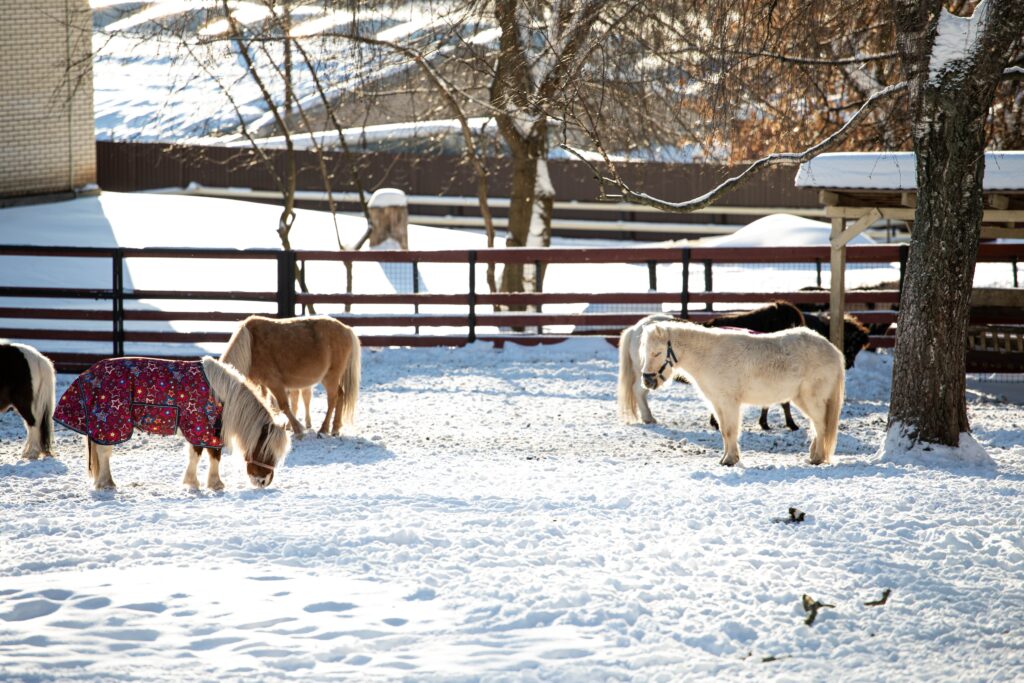
Their 6 Traits Adapted to the Cold
- Thick Double Coat: Icelandic horses have a dense double coat that provides excellent insulation against cold temperatures. This coat allows them to stay warm even in the harshest of winters.
- Unique Gait – The Tölt: Their natural gait, the tölt, is energy-efficient and comfortable for riders, making it an ideal gait for traversing snowy terrain.
- Sturdy Hooves: Icelandic horses have tough hooves that are less prone to injury in icy and rocky terrain.
- Endurance and Stamina: These horses are bred for endurance and can handle long journeys in extreme conditions without tiring easily.
- Resourcefulness: Icelandic horses have developed a strong survival instinct, enabling them to forage for food even in snow-covered landscapes.
- Mild Temperament: Their calm and gentle nature makes them easier to handle in challenging weather conditions, making them reliable companions in cold climates.
FAQs
What is Special about Icelandic Horses?
Icelandic horses are uniquely special due to their remarkable adaptability to harsh cold climates. They are a hardy breed known for their thick double coat, making them exceptionally resilient to frigid temperatures. Their ability to perform the distinctive tölt gait, which provides a comfortable and smooth ride even on snowy terrain, sets them apart. Additionally, their friendly and docile nature, combined with a robust physique, makes them ideal for various equestrian activities and a symbol of Iceland’s rich equine heritage.
Why are Icelandic Horses So Friendly?
Icelandic horses’ friendly demeanor is a result of their long history of close interaction with humans. Over centuries, these horses have developed a strong bond with the people of Iceland. Selective breeding has also played a role in shaping their temperament, favoring those with a mild and cooperative disposition. Their gentle nature makes them easy to handle and approach, fostering trust and companionship between rider and horse.
How do Icelandic Horses Survive?
Icelandic horses have evolved and adapted to thrive in the challenging conditions of Iceland. Their thick double coat provides insulation against the cold, and their sturdy hooves allow them to navigate icy and rocky terrain. They possess remarkable endurance and stamina, enabling them to forage for food in harsh winters. Their resourcefulness and ability to withstand extreme weather conditions are key factors in their survival. Additionally, their friendly and cooperative behavior allows them to form strong bonds with caretakers, ensuring they receive the care they need to endure Iceland’s rugged environment.
Why Can’t Icelandic Horses Go Back to Iceland?
Icelandic horses cannot return to Iceland if they have left the island due to strict biosecurity regulations. These regulations are in place to maintain the purity of the Icelandic horse breed and to prevent the introduction of diseases or genetic contamination from horses outside of Iceland. Once an Icelandic horse has left the country, it is typically not allowed to return. This strict policy helps preserve the unique genetics and health of the Icelandic horse population on the island.
Conclusion
Icelandic horses are a unique and hardy breed with a rich history and valuable traits that make them well-suited for cold environments. Whether you’re an experienced rider or a newcomer to the equestrian world, these horses offer companionship and versatility. Understanding their history, care requirements, and cold-adapted traits will help you appreciate the special qualities of Icelandic horses and determine if they are the right choice for your equestrian endeavors.
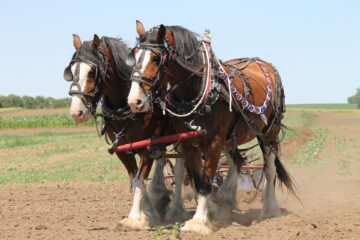
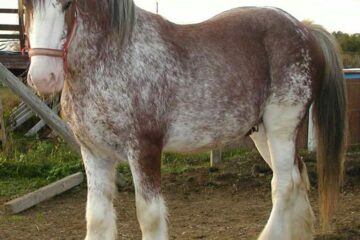
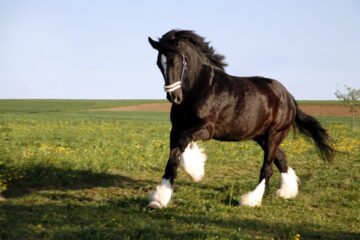
0 Comments